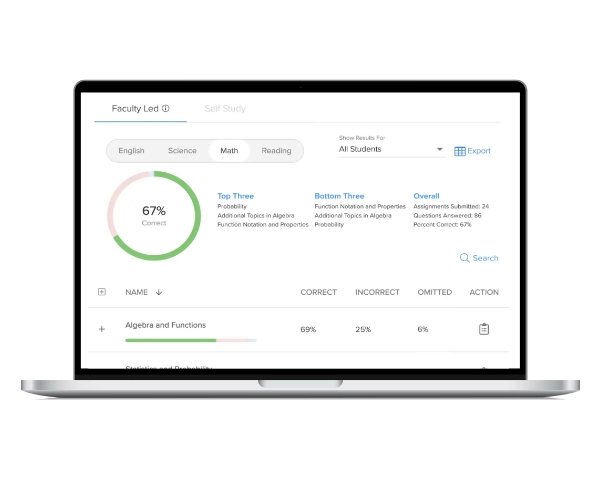Nikki stared at her computer screen, wondering just how she was going to find the time to complete the six hour online training course she had to do for her school district by next week. She didn’t mind professional development usually, but this was the same mandatory training on classroom best practices she’d had to complete every year for the last eight years of her teaching career. Additionally, the professional development had to be completed outside of school contract hours. The district had given teachers just one week to complete the six hours, and they’d also required several pages of redundant documentation on testing data that could also be found on the district’s reporting system. All of this teacher “homework” was too much, and quite frankly, Nikki didn’t understand the necessity of all of it.
Most K-12 teachers have, at some point, related to the experience of too much and/or unnecessary teacher “homework”. Even new educators quickly realize the redundancy of many required teacher tasks that must be completed outside of their contract hours. And yet, teachers often struggle with finding the appropriate level of rigor and the correct amount of homework to assign their students. Creating purposeful and effective AP® assignments can be especially difficult, as coursework expectations are especially high in college-readiness classes. All of this begs the question–how can teachers make sure their AP homework assignments truly count for their students?
Is AP Homework Really Necessary?
Before we can answer this question, we need to explore another one that has been a point of debate within education for years–is homework even necessary? The answer isn’t as clear-cut as many would like to believe. Although a clear majority (64%) of Americans do believe homework is beneficial to K-12 students,1 there are strong arguments both for and against assigning students work to complete outside of school hours. Proponents of homework point out that it consolidates the concepts students learn during school hours and develops work ethic and time management. Opponents claim the stress homework causes students negates any of its benefits.
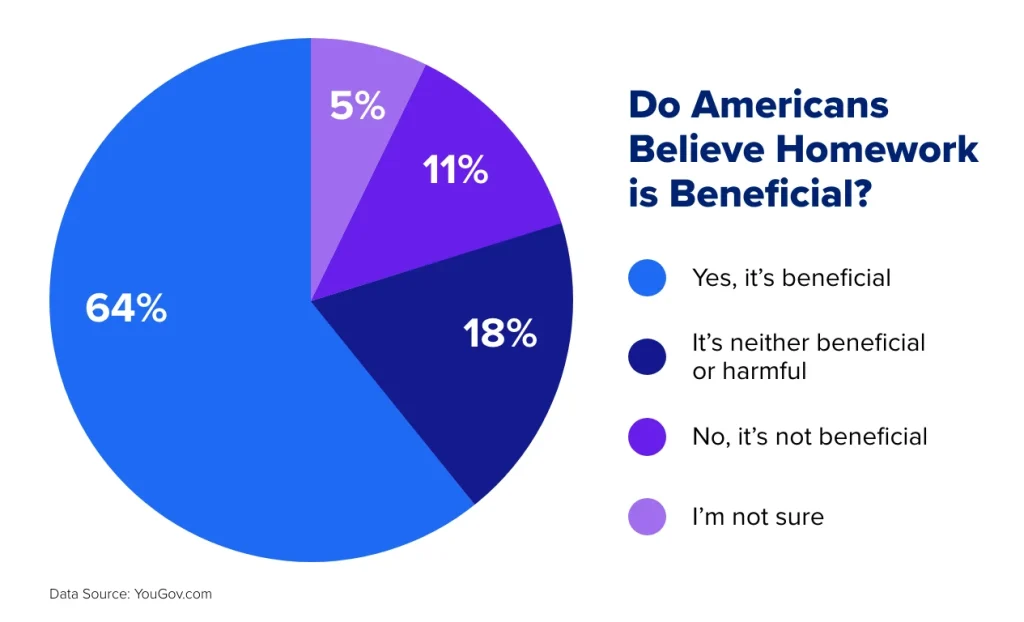
*Data Source: YouGov.com1
The most comprehensive research to date on the true benefits of homework is based on a study by Harris Cooper, a psychology professor at Duke University.2 Cooper’s study revealed a positive correlation between homework and student achievement, so he concluded that students who completed homework tended to perform better in school. Not all education experts, however, fully endorsed Cooper’s assessment of the data.
Cathy Vatterott, an education professor at the University of Missouri-St. Louis, countered Cooper’s findings by pointing out that correlation was not causation. She furthered her argument with her own question–”Does homework cause achievement, or do high achievers do more homework?”3
“Does homework cause achievement, or do high achievers do more homework?”
~Cathy Vatterott
Like the controversy itself, the research isn’t clear either way. And aside from a clear conclusion, the research lacks one very important variable—it doesn’t account for the college-level rigor and expectations that AP courses require of students.
The Purpose of Homework in AP Courses
When students enroll in AP courses, they are made fully aware of the heavy workload outside of class that is required in order to succeed in them. In addition to heavy reading and studying requirements, this also means larger amounts of homework than they might see in non-AP courses. This is in-part because, as college-readiness classes, AP courses must prepare students for the heavier workloads they’ll see if they enroll in college courses. Additionally, AP course standards historically cover too much information to adequately teach everything students need to learn before their summative AP exams. Spending time outside of school hours to prepare for what they will learn in class, develop critical thinking skills, and to form excellent work and study habits will not only prepare students for their AP exams and college courses, but will also prepare them for their future careers.
In addition to these fundamental justifications for AP homework, there are a number of objectives4 that AP assignments need to fulfill in order to be beneficial.
AP Homework Should Reinforce Learning and/or Encourage Learning Discoveries
AP homework should serve as a means to reinforce the concepts taught in class by providing opportunities for students to apply and practice what they have learned. It should go beyond rote memorization and encourage critical thinking, problem-solving, and analysis. AP homework should provide quality feedback so students can better understand what they get right and correct their understanding of misconceptions. Effective AP assignments should also challenge students to draw their own conclusions, think independently, and connect course concepts to real-world situations, fostering a deeper understanding of the subject matter and preparing them for the rigors of college-level education.
AP Homework Should Connect to AP Learning Goals
AP homework should be aligned with the specific learning goals outlined by the AP curriculum. It should directly address the content, skills, and competencies emphasized in the course. By connecting to AP learning goals, homework assignments can effectively reinforce and extend classroom instruction, allowing students to practice and demonstrate their mastery of the targeted knowledge and skills. This alignment ensures that students are adequately prepared for the AP exams and helps them develop the depth of understanding required to excel in the subject area.
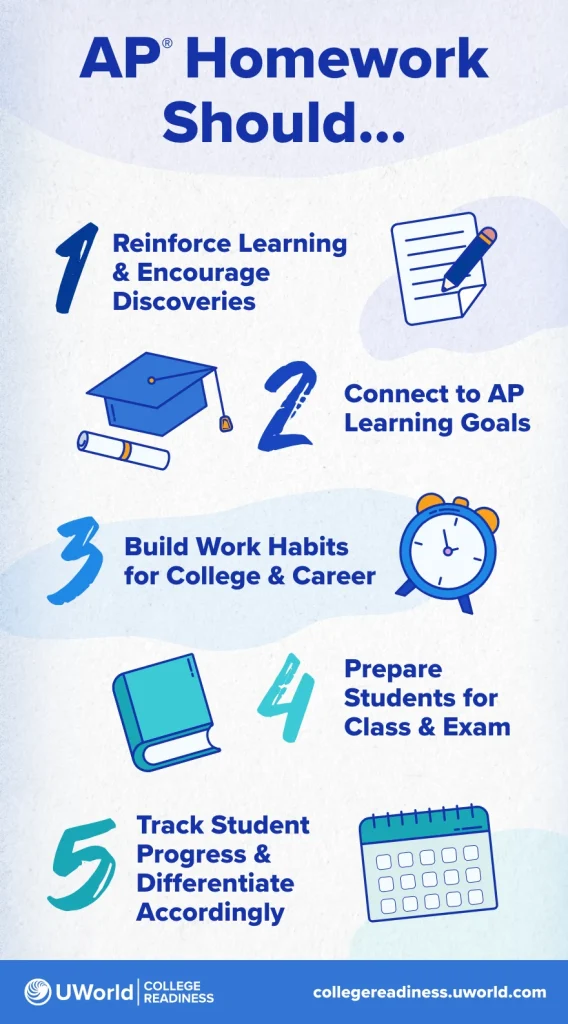
AP Homework Should Build Work Habits for College and Career
AP homework plays a crucial role in building work and study habits that are essential for college and future careers. By assigning challenging tasks that require independent research, critical thinking, and time management, AP homework helps students develop the discipline and self-regulation needed to succeed in higher education and professional settings. It instills a sense of responsibility, accountability, and perseverance as students learn to prioritize tasks, manage their time effectively, and meet deadlines. These skills and habits cultivated through AP homework set the foundation for lifelong learning, ensuring students are prepared for the demands of college and equipped with valuable skills for their future careers.
AP Homework Should Prepare AP Students for Class, As Well As the Exam
AP homework should serve as preparation for both class and the AP exam. It should encourage students to come to class ready to engage in meaningful discussions and activities related to the assigned work. By completing AP homework, students deepen their understanding of the subject matter, reinforce important concepts, and develop the skills necessary to perform well on the AP exam. The homework should include practice questions and problems that mirror the format and level of difficulty of the AP exam, allowing students to familiarize themselves with the exam structure, timing, and expectations.
AP Homework Should Track Student Progress and Differentiate Accordingly
AP homework should be designed to track student progress and provide differentiation based on individual learning needs. It can incorporate formative assessments, such as quizzes or AP assignments, that allow teachers to gauge student understanding and identify areas for improvement. Additionally, AP homework can offer differentiated tasks or extension activities to cater to varying levels of mastery and challenge students accordingly. This approach ensures that each student receives appropriate support and opportunities for growth, ultimately enhancing their learning experience and overall success in the AP course.
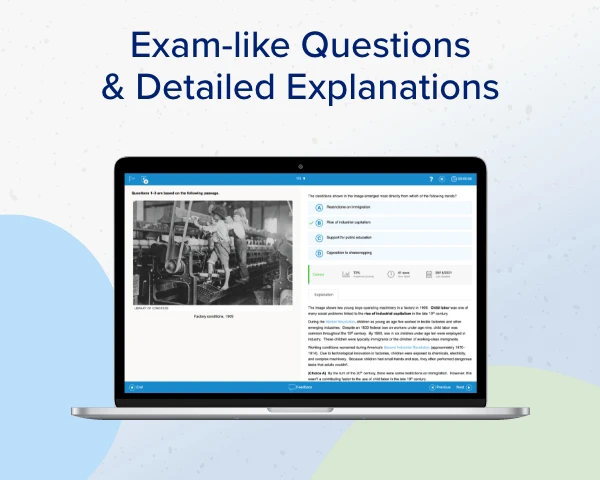
The Importance of Quality Over Quantity
Part of taking college-level courses, such as those offered through the AP program, is to prepare students for the responsibility of college-level assignments. Students who sign up for AP courses are made fully aware that this means they will be required to complete a greater amount of homework than what is typically required in non-college-readiness classes. Some educators mistakenly believe that the higher the quantity of AP assignments students receive, the more rigorous the course will be. Quantity does not, however, equal quality content and rigor.

Finding the appropriate level of homework for AP students can be tricky; after all, the whole point of high school students taking AP courses is to challenge them on a college level. High-achieving students tend to place a lot of pressure on themselves when striving for AP success, so when teachers give them too much homework—especially assignments perceived as busy work—it can take a toll on students’ mental health.
According to a Challenge Success study, 67% of students consider homework to be a main source of stress and anxiety.5 A certain amount of stress is expected while taking an AP class, of course, but to set students up for success in their AP course, it’s better (and healthier) to focus on assigning less homework with a higher level of rigor rather than large quantities of busy work.
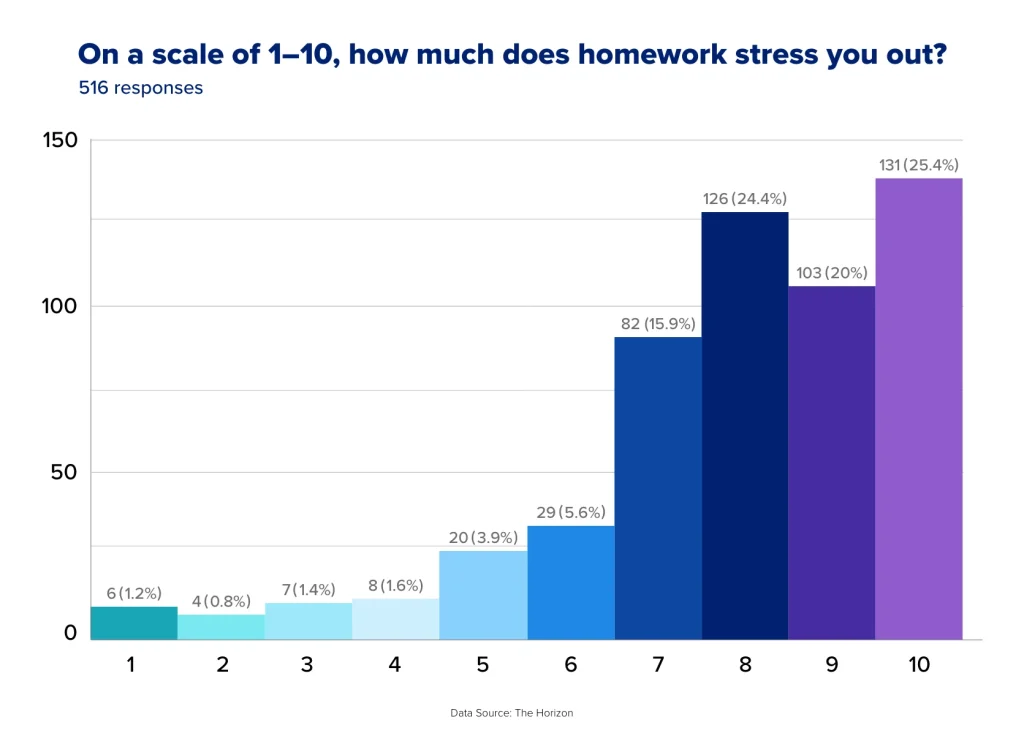
*Data Source: The Horizon6
Working Smarter (Not Harder) to Plan AP Homework Assignments
Creating fewer (but higher quality) AP assignments may sound simple enough, but rigorous homework requires a significant amount of time for both teacher planning and student completion. Assigning homework with UWorld’s Learning Tools for AP Courses, however, is one solution that can help educators and their students work smarter, not harder. With these tools, AP teachers can shift their focus from overwhelming students with a mountain of homework to prioritizing assignment quality over quantity.

By creating fewer but higher quality tasks with UWorld’s Learning Tools, teachers can ensure that each assignment truly helps students grasp the required AP course material and dispel any misconceptions they may have. As a result, students are able to master critical AP concepts efficiently, saving valuable time for everyone. This assignment efficiency, along with the effective feedback students receive on practice questions, creates a clear purpose for homework, motivating students to consistently complete their AP assignments in full.

Remember Your “Why”
There’s no getting around the fact that homework is an important part of AP courses. Finding the right balance with take-home AP assignments—the amount, the rigor, and the perceived purpose—can be tricky, even for the most seasoned AP educators. When in doubt, it’s a good idea to remember why we give students homework in the first place. It’s not just so students will be prepared to earn 4s and 5s on test day. Students are more than a score, and there’s a much bigger picture to consider. Homework that truly counts consolidates invaluable learning concepts, prepares students for the rigors of college, and provides opportunities for critical thinking and growth.

*Source: Vanderbilt University7
When striving to give students worthwhile take-home assignments, AP teachers can take a tip from the University of British Columbia’s Rob Peregoodoff. While responding to a social media post in 2020, the Director of Learning Services told teachers to “[be] authentic. To your students, and most importantly to yourself. Students know the distinction.”7
Learn more about how UWorld strives to authentically support educators who want to provide their students with AP homework that counts with our Learning Tools for AP Courses.

References
- Ballard, J. B. (2018, July 31). Do Americans think homework is helpful?. YouGov.com. https://today.yougov.com/topics/society/articles-reports/2018/07/31/homework-elementary-middle-high-school
- Cooper, H., Robinson, J. C., & Patall, E. A. (2006). Does Homework Improve Academic Achievement? A Synthesis of Research, 1987–2003. Review of Educational Research, 76(1), 1–62. https://doi.org/10.3102/00346543076001001
- Reilly, K. (2016, August 30). Homework: Is it good for kids? here’s what the research says. Time. https://time.com/4466390/homework-debate-research/
- The College Board®. (2023). Take control of homework. Big Future. https://bigfuture.collegeboard.org/plan-for-college/college-prep/stay-motivated/take-control-of-homework
- Challenge Success. (2020, August). Quality Over Quantity: Elements of Effective Homework. challengesuccess.org. https://challengesuccess.org/wp-content/uploads/2021/04/Challenge-Success-Homework-White-Paper-2020.pdf
- Boyd, C. (2021, March 3). Homework is stressing students out. Westwood Horizon. https://westwoodhorizon.com/2021/03/40490/
- Mcdaniel, R. (2021, January 11). Overcoming the “busywork” dilemma. Vanderbilt University. https://cft.vanderbilt.edu/2021/01/overcoming-the-busywork-dilemma/#:~:text=The%20busywork%20dilemma%20is%20where,which%20can%20be%20very%20frustrating.

